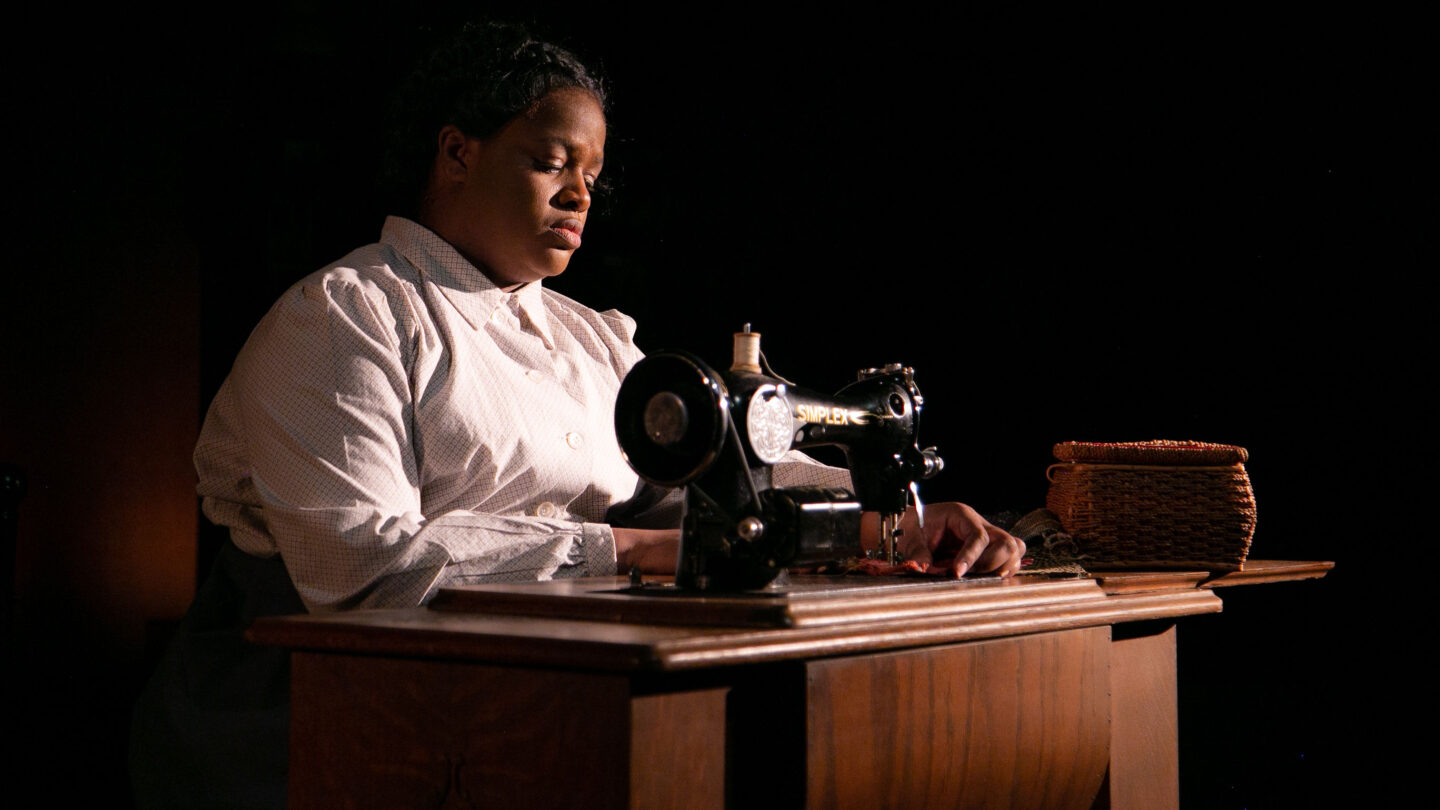A seamstress' journey for love in 'Intimate Apparel'

The Pulitzer Prize-winning play “Intimate Apparel” by Lynn Nottage is onstage now at Actor’s Express. The play is set in 1905 and tells the story of Esther, a 30-year old African-American seamstress trying to realize her dreams in New York City. Actor Vallea E. Woodbury, who portrays Esther, and director Ibi Owolabi joined Lois Reitzes via Zoom to talk more about the production.
Trying to describe the play’s story without giving too much away, Woodbury said, “It is a journey of searching for love, and finding a specifically romantic love, and how this particular journey for this seamstress goes as she navigates her world.”
Owolabi also offered, “Lynn [Nottage] has talked about how Esther is based off of her grandmother and how she was surrounded by love but was at times a little blinded to it because of different societal thoughts on how love should be portrayed.”
As Esther moves through New York City, her mastery at taming fabric orients her into a chaotic and confusing social world. “Watching her navigate these spaces with these different range of people, and realizing how much knowledge and love she pours into her craftsmanship — I think it makes us fall in love with her a bit,” said Owolabi. “The language of fabric carries her forward.”
The character was once portrayed by acclaimed stage and film actor Viola Davis in a 2004 off-Broadway production, and Woodbury deliberately avoided studying Davis’s performance. “Viola Davis is unparalleled … If I’m being completely honest, I think it would have psyched me out to watch a video of her,” she admitted.
But Woodbury’s fresh interpretation offers the opportunity to connect intimately to a character whose early-20th-century struggles remain relatable to many women today. She’s trying to start her own business as a single Black woman in a major urban market, and the social taboo of being unmarried complicates her reputation.
Woodbury describes a scene where Esther talks about the salon she wants to open: “Esther says very specifically, ‘The space I’m talking about is a space in which you get treated the way no one treats us.’ No one treats Black women with the respect, with the expectation that they deserve the same amount of pampering and comfort, and need those things, that particularly at the time, white women were treated.”
The play’s title, “Intimate Apparel,” matches that of Esther’s shop, but Owolabi suggests another layer of meaning. “This is somebody who creates the type of clothing that is almost right-up-next-to-your-skin clothing, that is truly just to make us feel more beautiful, or to boost our confidence or to appeal to the one that we love. And for [Esther] to understand this on such a level as somebody who’s never experienced it themselves … it’s wonderful to see Esther live in that way and to understand her in that way, and I think that that’s why the title really wraps that up in a very delicious way.”
“Intimate Apparel” is on stage through April 17 at Actor’s Express, located at the King Plow Arts Center in Midtown Atlanta. Tickets and more information are available at actors-express.com/plays/intimate-apparel.








